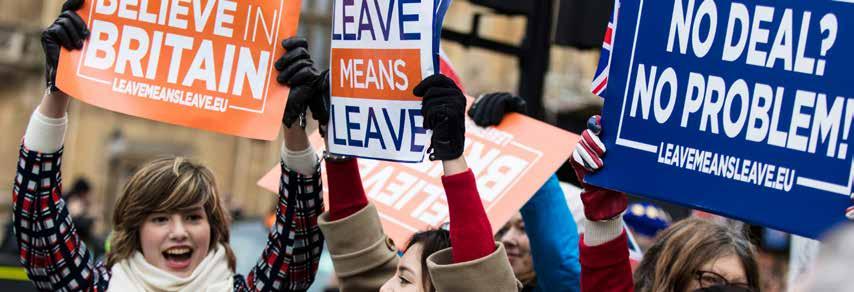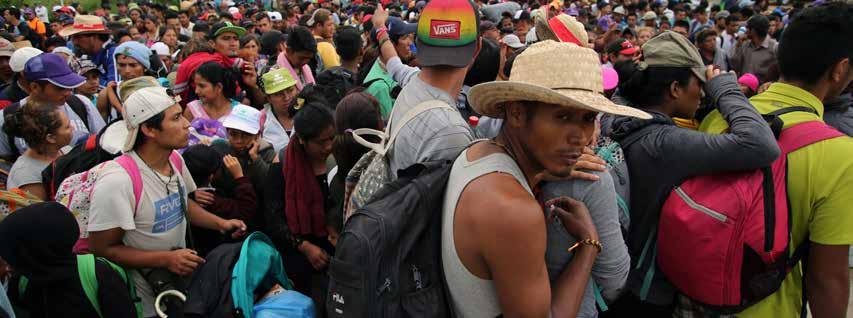
2 minute read
Global Europe Program
213things to watch: GLOBAL EUROPE
1
Shutterstock.com/ Elena.Katkova
Europe’s Long Road to Pandemic Recovery
COVID-19 ravaged Europe with unprecedented ferocity and scale. In 2021, the challenge will be to mitigate the health impact of the virus, distribute vaccines widely and equitably across the continent, and engineer an economic revival. The European Union passed a groundbreaking $2.2 trillion economic recovery package that includes agreement on the bloc’s next seven-year budget. Tangible signs of recovery are already visible. Investment activity is stirring. Trade is restarting. Nonetheless, the return to healthy societies and economies will take time, and likely will be uneven within and across countries. Moreover, even with vaccines now available, COVID-19 will remain a scourge. And the changes wrought by the pandemic are profound. The crisis is reconfiguring European supply chains, reinforcing calls for a Green recovery, boosting investment in healthcare infrastructure, and accelerating the adoption of next-generation technologies.
Featured Experts:
Daniel S. Hamilton, Director, Global Europe Program
Catherine Ashton, Bank of America Global Europe Chair www.wilsoncenter.org/globaleurope GEP@wilsoncenter.org facebook.com/GlobalEuropeProgram @WilsonCenterGEP 202/691-4353
years
2
No Exit from Brexit

Shutterstock.com/Ink Drop
The UK left the European Union formally on January 31, 2020. But after months of transition, the new UK-EU relationship truly begins in 2021. Although the two sides struck a Christmas Eve trade deal, uncertainties abound, which means that Brexit’s impact will continue to ripple through 2021. Expect new customs barriers, border disruptions, complex regulatory hurdles, and tough restrictions on the movement of people. The UK’s trading and security ties are also being upended – including with the United States. A bilateral US-UK trade deal is still to be finalized amidst U.S. concerns that one of Brexit’s casualties could be the Good Friday agreement that brought peace to Northern Ireland. Scotland’s May 2021 parliamentary election could herald another independence referendum. New rules, new relationships: the Brexit saga will go on and on and on in 2021.
3
Shutterstock.com/Gabriele Pedrini

The Mediterranean: Troubled Waters
Geopolitical tensions and energy quarrels will embroil societies across the Mediterranean region in 2021, and draw the United States, the European Union, NATO, Russia, China and Persian Gulf countries into the fray. Non-state actors such as the Islamic State, al-Qaeda, and Hezbollah continue their threats. Traditional differences between Greece and Turkey over maritime boundaries and Cyprus have been sharpened by Turkish efforts to block Cyprus, Greece, Egypt, Israel and other partners from exporting natural gas to Europe from fields under the seabed. Turkey’s assertive actions, from Libya and Syria to Nagorno-Karabakh, have strained relations with its NATO allies. The U.S. has targeted Turkish entities with sanctions because of Ankara’s acquisition of an advanced Russian S-400 air-defense system. The EU is also threatening to sanction individuals involved in Ankara’s regional energy exploration. Tensions could imperil the EU’s €1 billion migration deal with Turkey to stop Syrian refugees crossing into Europe.










